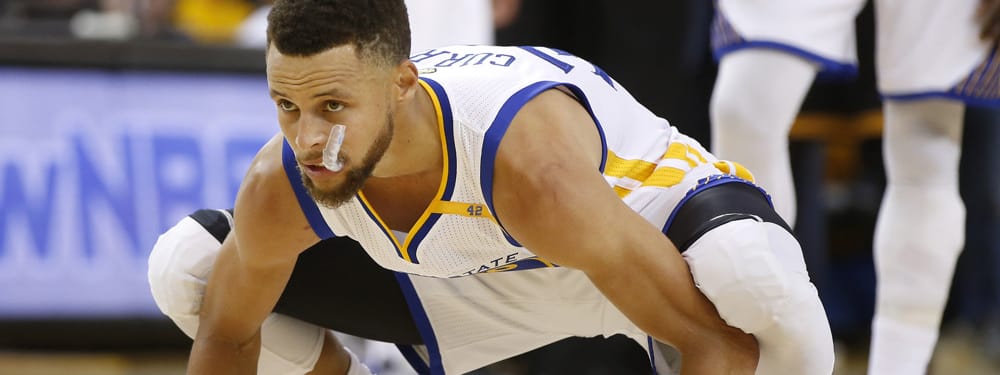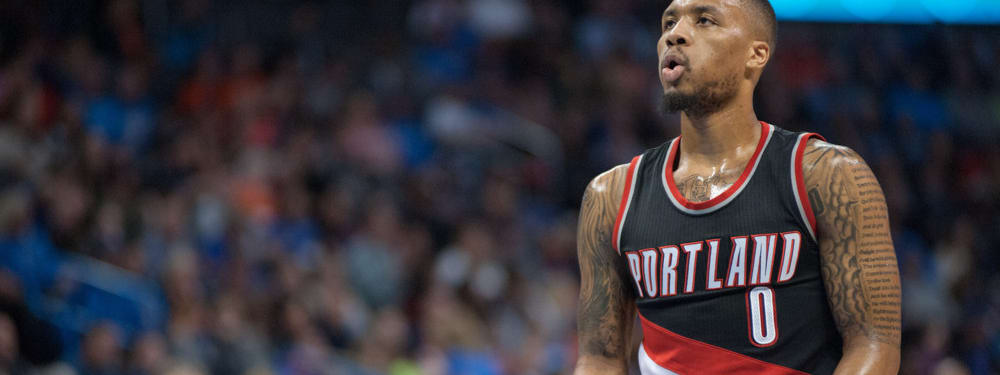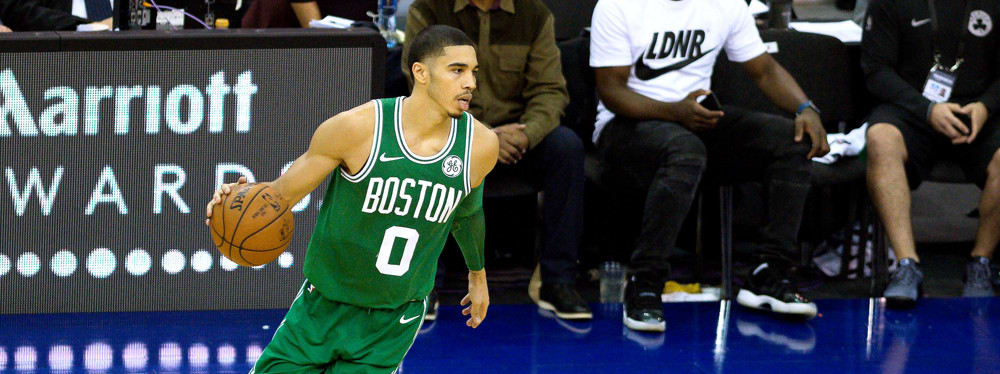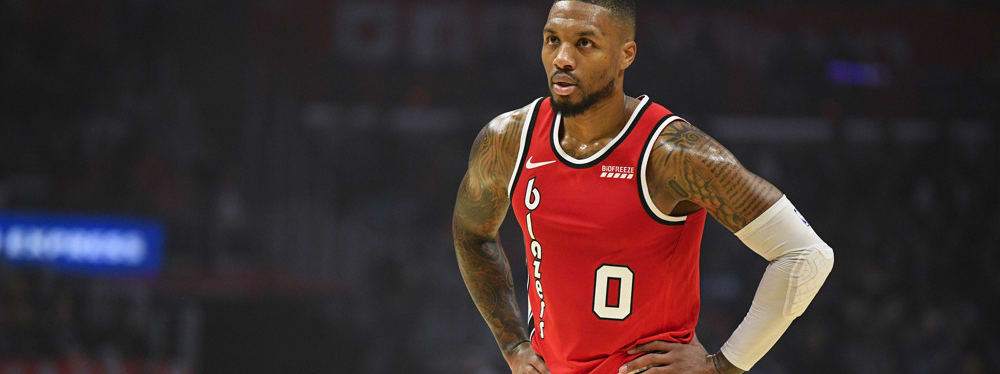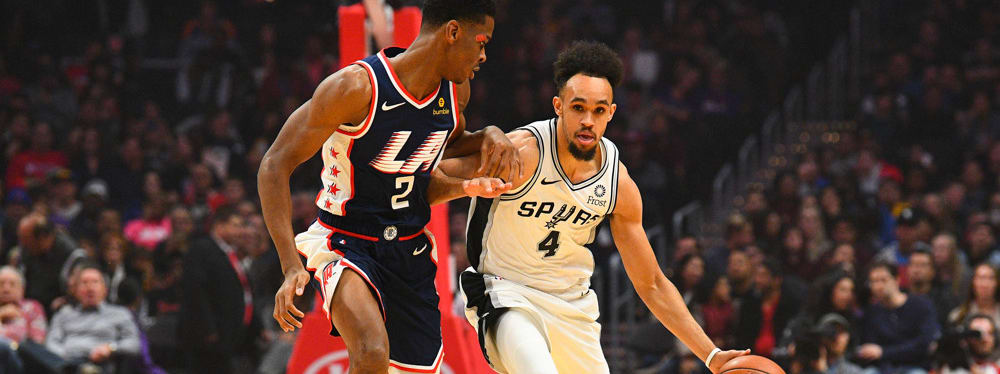Recent RotoWire Articles Featuring Anthony Tolliver
See More
Tolliver wasn't impactful in terms of filling up the box score this past season, averaging 5.0 points (38.2 FG%, 37.7 3P% 78.3 FT%), 2.7 rebounds, 1.2 threes, 0.7 assists, 0.3 steals and 0.3 blocks in 16.6 minutes across 65 appearances with the Timberwolves. Having signed with the Trail Blazers this summer, it's possible Tolliver will end up earning the primary backup power forward job once again, with Zach Collins potentially stepping into the starting role. Even at 34 years old, it's within the realm of possibility that Tolliver pushes toward 20 minutes per contest, which is essentially his career average (19.9 minutes per game). Even if that happens, he has limited appeal, as he's mostly valuable for his ability to threaten opposing defenses from beyond the arc. As such, Tolliver is likely best reserved for use in the very deepest formats and can be avoided in most fantasy drafts.
Tolliver finished the 2017-18 season strongly in Detroit, picking up some of the slack after Blake Griffin went down with an injury. Over the last five weeks of the season, Tolliver posted averages of 11.6 points per game and 3.5 rebounds per game, to go with 2.6 made threes. The veteran now makes his way back to Minnesota, where he figures to be a consistent bench presence for a team in need of floor-spacers. The Wolves have a decent supply of depth at the four in Taj Gibson and Gorgui Dieng, but Tolliver is a better shooter than both players and will fight for minutes in what's become a notoriously tight rotation. It'll be difficult for Tolliver to match the 22-plus minutes per game he saw last season, but if Gibson, Dieng or even Karl-Anthony Towns were to go down, Tolliver would be in position to pick up increased offensive responsibility. At this point in his career, however, Tolliver is essentially a three-point specialist who chips in a few rebounds. Last season, more than 77 percent of his field goal attempts came from beyond the arc.
The nine-year journeyman spent the 2016-17 campaign with the Kings, marking his fifth team in as many seasons. That didn't stop him from putting together his best overall stat line since 2009-10, as Tolliver posted averages of 7.1 points, 3.6 rebounds, 1.2 assists and 1.4 three-pointers across 22.7 minutes, all up from a year prior. In signing with the Pistons to a one-year, $3.3 million contract, Tolliver will be relegated to a bench role. Both Tobias Harris and Jon Leuer should be ahead of him on the power forward depth chart, leaving Tolliver to fight with Henry Ellenson for scrap minutes. Still, Tolliver is a career 36 percent shooter from three-point land, so he'll be a nice floor spacing threat off the bench when the Pistons need him. Tolliver's Fantasy value should be restricted to those in the deepest of leagues unless injuries occur higher up on the depth chart.
Tolliver is a seven-year veteran of the NBA who has played on eight different teams. He signed a two-year deal with the Suns last summer but didn't fit with the team and was traded to the Pistons in December. Tolliver played well as a stretch power forward off the bench behind Greg Monroe, and during an 11-game stretch in which Monroe was absent from the lineup, Tolliver was given all the available starts at power forward. In those starts, he averaged 9.5 points, 2.4 three-pointers, 4.9 rebounds, 1.5 assists, 0.5 steals, and 0.3 blocks in 30 minutes per game while shooting 42 percent from the field, 43 percent from three, and 80 percent from the line. Those numbers are sad, because 30 minutes is significant in the NBA today, but it's evidently not enough minutes for a player like Tolliver to put up good fantasy stats in. His three-pointers are elite, to give props where props are due, but Tolliver doesn't rebound exceptionally well, and he doesn't get assists, blocks, or steals. Leave him on the wire in anything but the deepest of leagues.
Tolliver is entering his seventh season in the NBA and his first with the Suns. A career journeyman, he spent last season with Charlotte where he played in 64 games. Tolliver posted averages of 6.1 points, 2.6 rebounds, and 1.6 threes in 20 minutes per game last season. He shot 42 percent from the field on 4.8 attempts, 41 percent from three on 3.9 attempts, and 81 percent from the free-throw line on 0.6 attempts per game. With the Suns, Tolliver will likely get a crack at replacing Channing Frye as their stretch-four, and that is where his fantasy value lies - on the perimeter. Tolliver offers three-pointers from the power forward position and has value for that but little else. He shoots a poor percentage from the field for a big man and is almost better served gunning it from beyond-the-arc than anywhere else on the court. Tolliver could add value for those playing in deep leagues looking for out-of-position category contributions, but standard formats can look elsewhere for value.
Tolliver will likely be a role player. Don't expect him to be a big fantasy producer with the Bobcats as a result of the team's depth at forward.
After averaging 12.3 ppg and 7.3 rpg in 32.3 minutes per game with Golden State in 2009-10, Tolliver signed with Minnesota but was reduced to a smaller role. He missed a month with a sprained MCL, but it didn't appear to impact his role with the team. He runs the floor well and is multi-dimensional on offense. That skill set had upside when the T-Wolves wanted to be an up-tempo offense under head coach Kurt Rambis. With Rick Adelman taking over as head coach, Tolliver may reduced to a minor role off the bench and it wouldn't be surprising to see him traded at some point.
He was one of the biggest surprises in fantasy last season, averaging 12.3 points and 7.3 rebounds in 44 appearances with the Warriors. Unfortunately most of that value came as a byproduct of playing in Warriors coach Don Nelson's high-octane offense. After signing with Minnesota, he may also struggle for playing time initially since he'll be behind the third or fourth option at both center and power forward. Still, he could be a good fit for the Timberwolves if they follow through with their plans to be an up-tempo running team.








